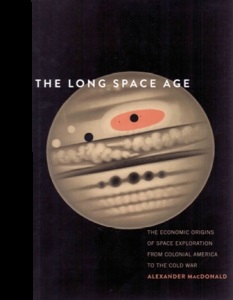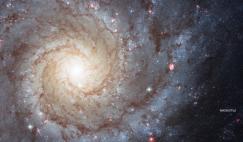Received wisdom has it that, historically, space exploration and development was a public sector endeavour and only recently has the private sector – think nanosat constellations, asteroid mining and Elon Musk! – offered an alternative model. In contrast, according to its blurb, this economics-based history of the Space Age “clearly shows that the current prominence of private-sector American spaceflight is the re-emergence of a long-running trend, not a new phenomenon”.
Written by an economist at the Jet Propulsion Laboratory (a rare bird indeed), this book investigates – in the words of its subtitle - “the economic origins of space exploration from colonial America to the Cold War”. It does so in four main chapters with somewhat obscure titles (for example, “In the eyes of the world: the signaling value of space exploration”) and backs them up with 40 pages of chapter notes and index. The text is broken only by a handful of graphs and tables in the early pages.
What I like about the book is that it assumes a certain familiarity with the space endeavour, eschews the typical early chapters on space history and gets down to the nitty-gritty from the second paragraph. By page three, the author is warning us that the conventional narrative is “misleading” and that looking at the history of American space exploration on a longer timescale reveals “a very different history…one in which personal initiative and private funding is the dominant trend and government funding is a recent one”.
In such a new universe, the Long Space Age of the book’s title goes back to the discovery of the telescope. The author justifies this assertion by reference to the funding of some of the major US observatories, the writings of Willy Ley and the rocket experiments of Robert Goddard. It’s fascinating stuff.
Interestingly, what this book illustrates so well is that professional accounts of space history are not solely the remit of historians; professionals in other areas can make a valuable and stimulating contribution.











